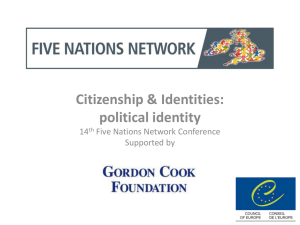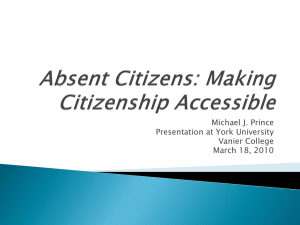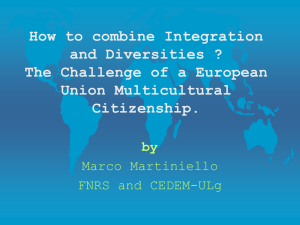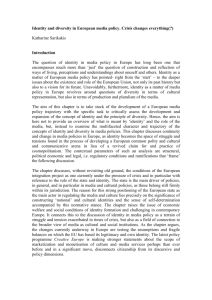The Promotion of Culture in Citizenship Education and its Influences
advertisement
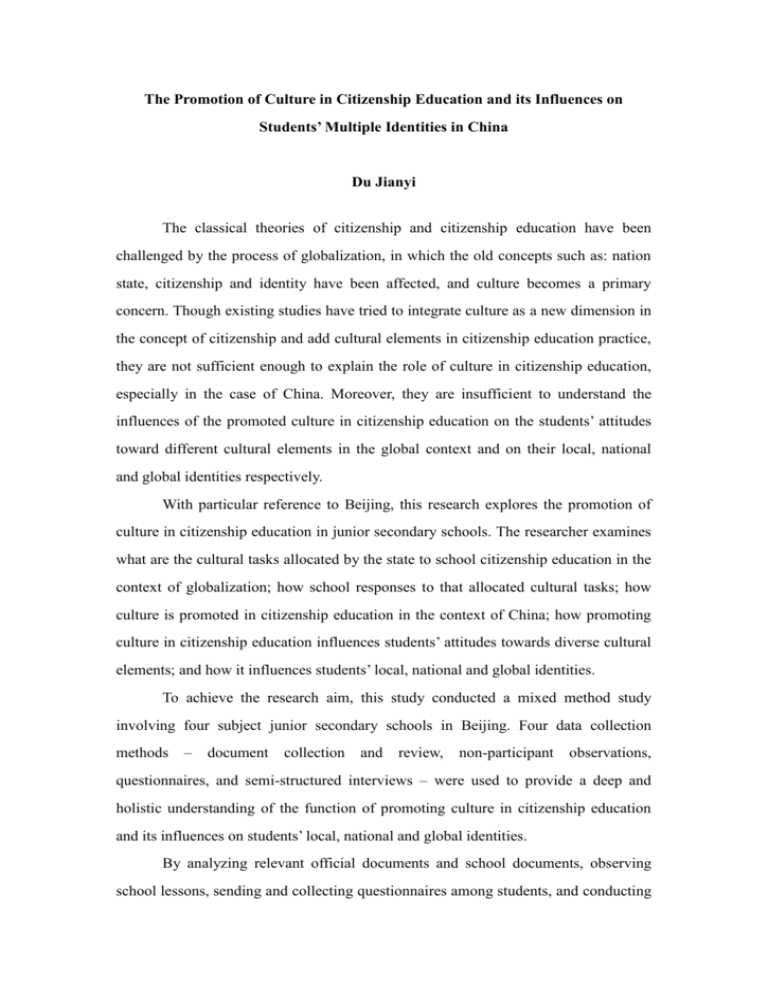
The Promotion of Culture in Citizenship Education and its Influences on Students’ Multiple Identities in China Du Jianyi The classical theories of citizenship and citizenship education have been challenged by the process of globalization, in which the old concepts such as: nation state, citizenship and identity have been affected, and culture becomes a primary concern. Though existing studies have tried to integrate culture as a new dimension in the concept of citizenship and add cultural elements in citizenship education practice, they are not sufficient enough to explain the role of culture in citizenship education, especially in the case of China. Moreover, they are insufficient to understand the influences of the promoted culture in citizenship education on the students’ attitudes toward different cultural elements in the global context and on their local, national and global identities respectively. With particular reference to Beijing, this research explores the promotion of culture in citizenship education in junior secondary schools. The researcher examines what are the cultural tasks allocated by the state to school citizenship education in the context of globalization; how school responses to that allocated cultural tasks; how culture is promoted in citizenship education in the context of China; how promoting culture in citizenship education influences students’ attitudes towards diverse cultural elements; and how it influences students’ local, national and global identities. To achieve the research aim, this study conducted a mixed method study involving four subject junior secondary schools in Beijing. Four data collection methods – document collection and review, non-participant observations, questionnaires, and semi-structured interviews – were used to provide a deep and holistic understanding of the function of promoting culture in citizenship education and its influences on students’ local, national and global identities. By analyzing relevant official documents and school documents, observing school lessons, sending and collecting questionnaires among students, and conducting semi-structured interviews with students, teachers, and school leaders, this research finds that although schools acknowledging the importance of culture’s value in citizenship education, limited time is used to introduce culture to students in either curriculum or extra-curriculum activities; the schools’ promotion of local, national and global cultural elements featured significant urban-rural differences – the rural schools emphasize more on promoting local and national culture than the urban schools; the students’ local and national identities are affected not only by promotion of local and national culture in school, but also by their family circumstances and personal experiences; and, despite little access to the global cultural elements is provided in schools, the students show a high interests in global culture and communities and value their global identities. This study also illustrates the constitutions of students’ multiple identities in each domain from their own perspectives.




